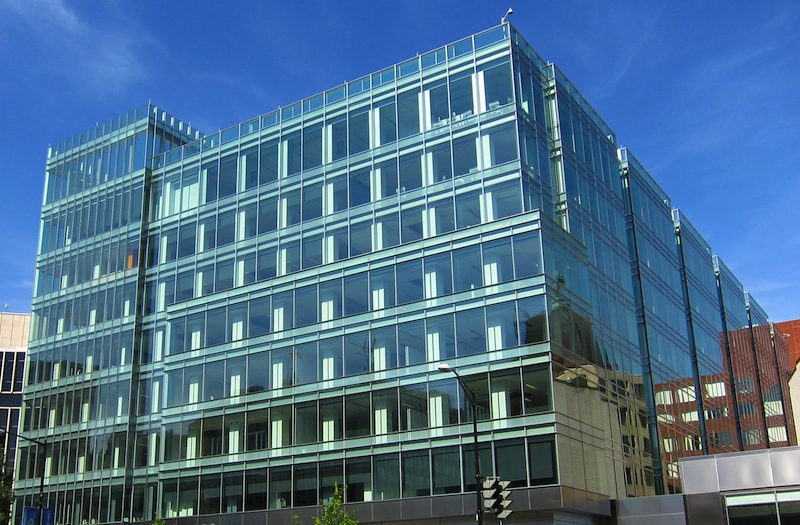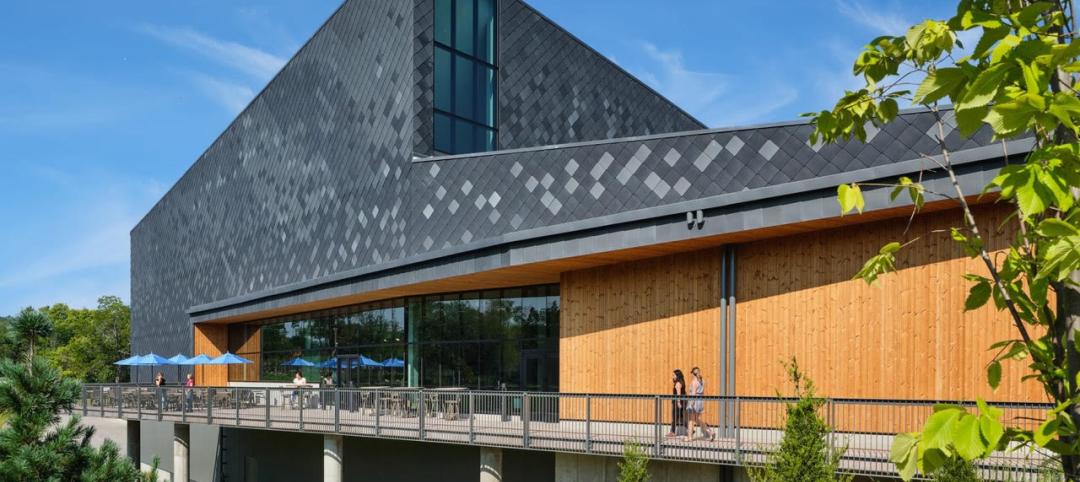Worries about legal liability have long dogged the sustainable building movement, but insurance expert Karen Erger (Locton Companies) and attorney Eric Singer (Ice Miller LLP) say sustainability lawsuits are caused by the same types of issues that have always prompted clients to sue AEC firms. "The 'new' risks of green design are the same as in any kind of design," says Erger. The two presentated at BUILDINGChicago earlier this week (download the presentation).
Suits tend to center around four areas:
- Client expectations unmet (desired level of certification not achieved, project failed to qualify for incentives, energy savings not realized, sustainable elements increased cost or caused delay).
- Elevated standard of care.
- Uninsurable guarantees or warranties.
- Problems caused by new products or systems (didn't work as advertised, weren't installed properly, weren't operated or maintained properly).
The best tools for managing such risks are well-established, according to Erger and Singer:
- Define and document the client's goals. (Don't guarantee that goals will be achieved; set and reinforce reasonable expectations throughout the project; don't assume risk of factors you can't control.)
- Set a reasonable standard of care. Don't allow elevated language about your performance to creep into the contract (such as incorporation of marketing language from your initial proposal).
- Don't warrant or guarantee outcomes (specific level of a standard, specific energy savings, etc.).
- Do due diligence when specifying products. (Get the owner's informed consent for using new products, and document your research -- even if most if it is digital. Print it or take screen shots, and put it in a project file that you can find later.)
Singer says the AIA's Guide for Sustainable Projects (D503-2011) is "a really good guide for contract language modification and risk protection." The 2012 AIA Sustainable Projects (SP) forms incorporate model language into existing AIA contract documents (A101, A201, A401, B101, C401). Singer and Erger placed particular emphasis on not guaranteeing achievement of specific sustainability goals, on avoiding unduly elevating the standard of care beyond the ordinary level of professional practice, and on avoiding taking responsibility for functions that are being performed by other parties, including the contractor, subs, and the owner.
The AIA's form B101-2007 SP offers language protecting the architect when untested materials and equipment will be used, and the association also offers "Client Waiver and Informed Consent to use an Experimental Green Product." Since a manufacturer may no longer be in business months or years later, if a problem arises, management of legal liability for the use of experimental green products is important.
Related Stories
Office Buildings | Mar 27, 2024
A new Singapore office campus inaugurates the Jurong Innovation District, a business park located in a tropical rainforest
Surbana Jurong, an urban, infrastructure and managed services consulting firm, recently opened its new headquarters in Singapore. Surbana Jurong Campus inaugurates the Jurong Innovation District, a business park set in a tropical rainforest.
Cultural Facilities | Mar 27, 2024
Kansas City’s new Sobela Ocean Aquarium home to nearly 8,000 animals in 34 habitats
Kansas City’s new Sobela Ocean Aquarium is a world-class facility home to nearly 8,000 animals in 34 habitats ranging from small tanks to a giant 400,000-gallon shark tank.
Cultural Facilities | Mar 26, 2024
Renovation restores century-old Brooklyn Paramount Theater to its original use
The renovation of the iconic Brooklyn Paramount Theater restored the building to its original purpose as a movie theater and music performance venue. Long Island University had acquired the venue in the 1960s and repurposed it as the school’s basketball court.
Green | Mar 25, 2024
Zero-carbon multifamily development designed for transactive energy
Living EmPower House, which is set to be the first zero-carbon, replicable, and equitable multifamily development designed for transactive energy, recently was awarded a $9 million Next EPIC Grant Construction Loan from the State of California.
Museums | Mar 25, 2024
Chrysler Museum of Art’s newly expanded Perry Glass Studio will display the art of glassmaking
In Norfolk, Va., the Chrysler Museum of Art’s Perry Glass Studio, an educational facility for glassmaking, will open a new addition in May. That will be followed by a renovation of the existing building scheduled for completion in December.
Sustainability | Mar 21, 2024
World’s first TRUE-certified building project completed in California
GENESIS Marina, an expansive laboratory and office campus in Brisbane, Calif., is the world’s first Total Resource Use and Efficiency (TRUE)-certified construction endeavor. The certification recognizes projects that achieve outstanding levels of resource efficiency through waste reduction, reuse, and recycling practices.
Office Buildings | Mar 21, 2024
Corporate carbon reduction pledges will have big impact on office market
Corporate carbon reduction commitments will have a significant impact on office leasing over the next few years. Businesses that have pledged to reduce their organization’s impact on climate change must ensure their next lease allows them to show material progress on their goals, according to a report by JLL.
Adaptive Reuse | Mar 21, 2024
Massachusetts launches program to spur office-to-residential conversions statewide
Massachusetts Gov. Maura Healey recently launched a program to help cities across the state identify underused office buildings that are best suited for residential conversions.
Legislation | Mar 21, 2024
Bill would mandate solar panels on public buildings in New York City
A recently introduced bill in the New York City Council would mandate solar panel installations on the roofs of all city-owned buildings. The legislation would require 100 MW of solar photovoltaic systems be installed on public buildings by the end of 2025.

















